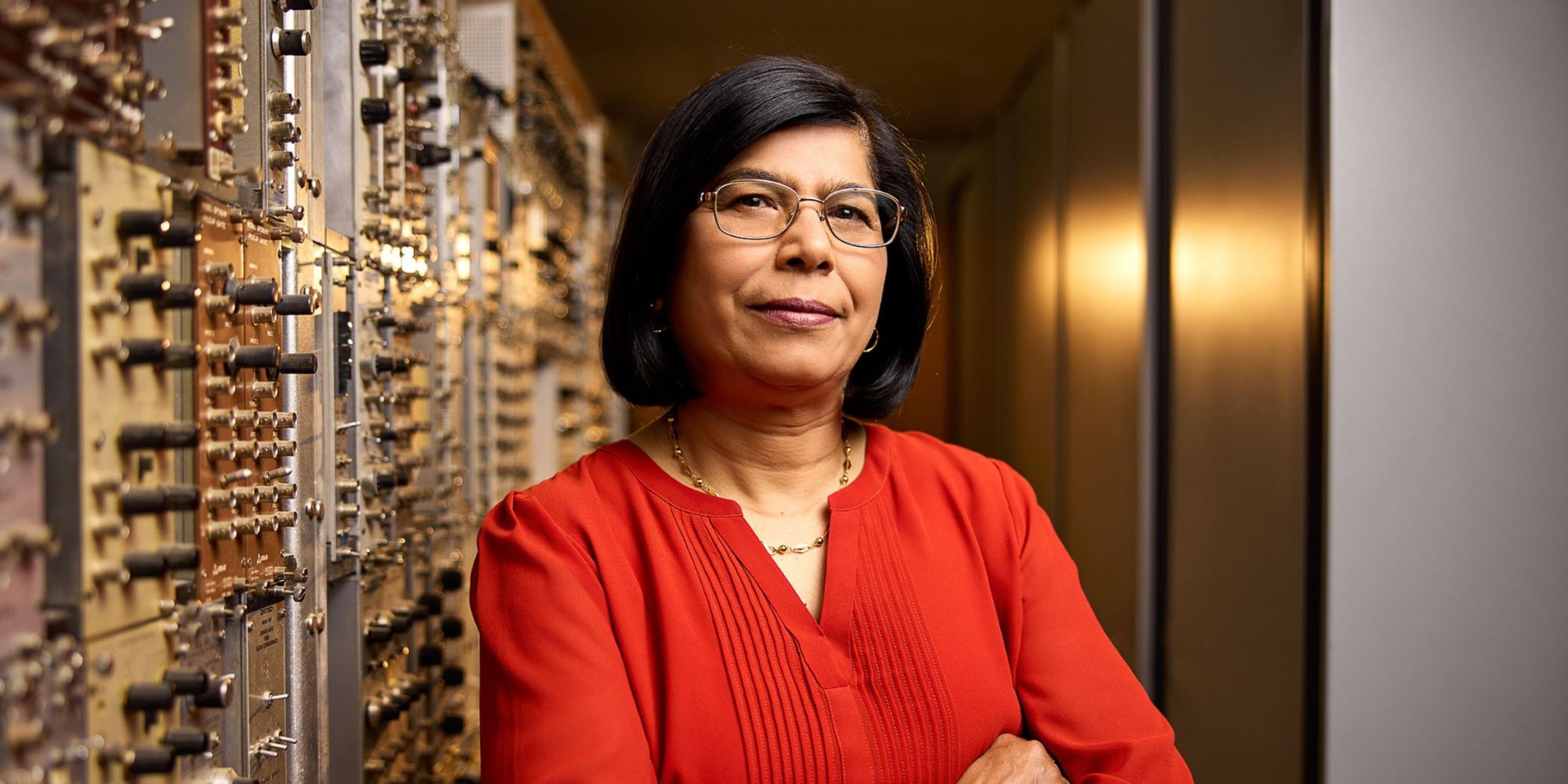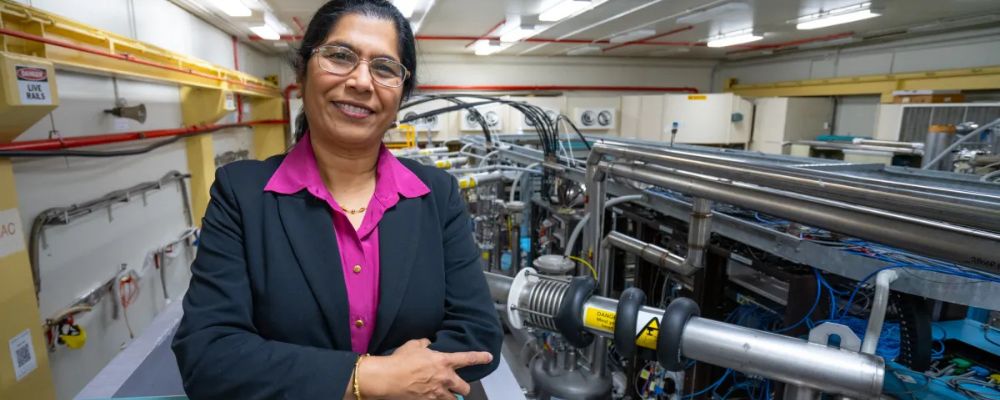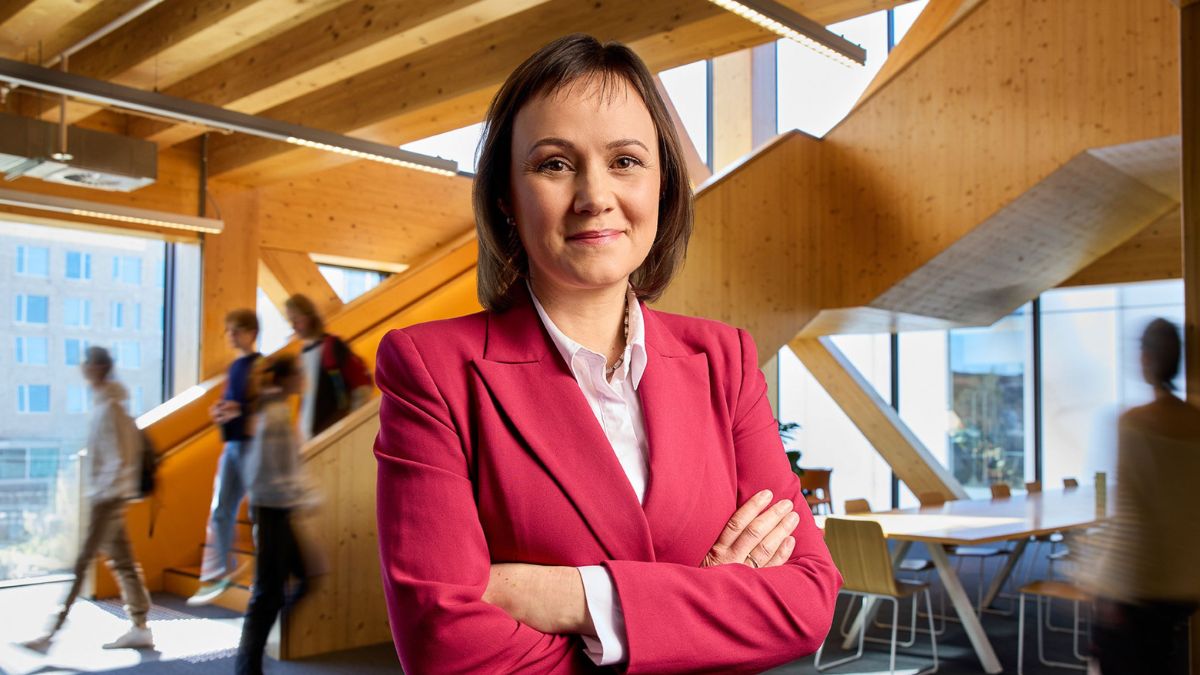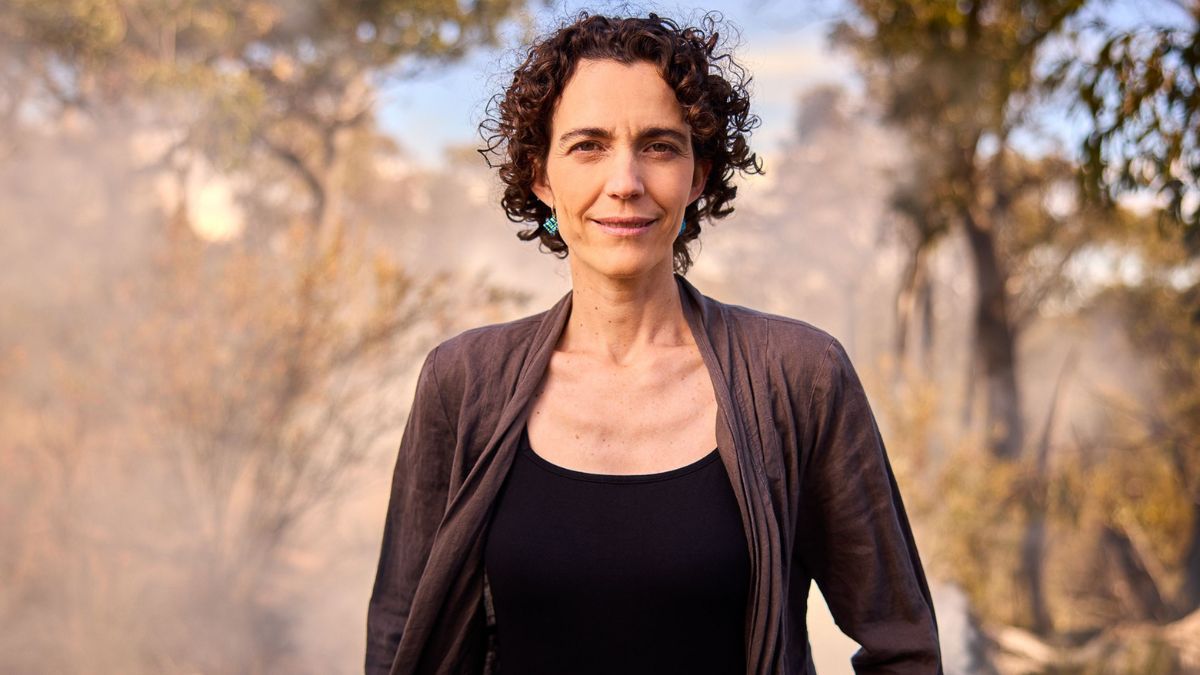
Published on
Mahananda Dasgupta: the world inside an atom
Meet Professor Mahananda ‘Nanda’ Dasgupta - experimental nuclear physicist, research leader and mentor at the Australian National University (ANU), whose work explores the invisible forces that shape our universe.
Nanda leads some of the most advanced nuclear science experiments in the country. Her research focuses on understanding how matter interacts at the smallest scales, which helps to advance everything from novel energy sources to the fundamental rules of nature itself.
She’s also made history. Nanda was the first woman appointed to a continuing academic position in physics at ANU and now leads the Heavy Ion Accelerator Facility — the largest of its kind in Australia.
In simple terms, describe what you do.
I plan and perform experiments to understand the core of the atoms that make up everything, including us.
The core of the atom -the nucleus - is tiny. A line of 5 billion atomic nuclei next to each other will be the same as the thickness of human hair! I use the particle accelerator at ANU and devise experiments to see how atomic nuclei interact.
Such interactions power the Sun, affect space-bound objects and are utilised for cancer treatment. It is fascinating and challenging to peer into this tiny quantum world. As we understand it more, we increase our ability to use it for frontier research, applications and societal benefit.
What's a typical day in your life look like?
My days vary a lot, which is exciting. Suppose it is a day where we are using the accelerator to perform experiments. In that case, we will be there long hours at the accelerator laboratory to perform and interpret the observations. It is like solving a puzzle under intense time pressure. These are my favourite days, it is challenging intellectually, exhausting physically but it is a great buzz.
On other days, I may have scientific or technical discussions as we develop new capabilities and interpret results of experiments, teaching and helping prepare publications or talks. Each day invariably (and increasingly) involves reading and replying to emails and management tasks.
I love that each day is different and brings its challenges. It is a great environment for lifelong learning.

Professor Mahananda Dasgupta at the Heavy Ion Accelerator Facility, ANU
What's something about your work or field that you find fascinating?
The fact that I look at how nature works at scales 10,000 times smaller than visible with the most powerful of microscopes, and yet we can learn about properties and interactions at the core of the atom using scientific principles and technological developments.
Societal understanding, values and expectations come into play when the findings lead to newer or improved applications. This confluence of hard sciences and social benefits is a fascinating thing too.
Who inspires you?
Many people have inspired me as I have gone through life, starting initially with my parents, grandmother and teachers.
Foundationally, people who inspire me see the bigger or longer-term picture and work (sometimes against societal norms) to empower individuals or family/community to bring about a positive change. Thus, people who have inspired me are everyday people who are neither powerful nor world-famous, but their actions have empowered many and influenced workplaces and/or society.
What are some things about you that people might be surprised to learn?
I like being by myself, which may not be picked up by those who see me in a group or gathering. Quiet times in nature and enjoying my own company are things I love.
Another thing - I have a great sense of smell, which helps immensely whilst cooking - I believe I can recognise whether salt has been added or not from the smell of food being cooked.
What's one lesson you've learned throughout your career?
The importance of resilience.
What do you find more rewarding about being a part of an academic researcher at ANU?
The ability to interact with and connect with the ever-changing cohort of students and postdocs. There is so much to learn, understand and respond to and changing expectations. It keeps me young in my mind.
"It is a joy to work with such high-quality emerging talent – new generations, new ideas and ways of thinking."
What's one thing you always make time for, no matter how busy life gets?
Mentoring the young generation and understanding their challenges.
What do you think makes ANU unique?
We have a compact campus with a wide range of expertise and nature and plenty of green spaces to walk, think through and solve problems, which is a provider of calmness in challenging times.
What's one piece of advice you'd give to future students who are just about to embark on their university journey?
Don’t let anyone, including yourself, treat you simply as a brain on a stick (and not as a human being).
Learn more about the innovative research at the ANU Research School of Physics.


